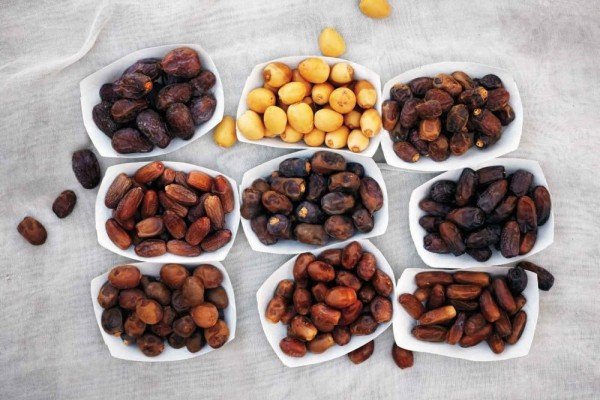
Pembekal Kurma: Unveiling Different Grades and Qualities of Dates
Introduction
Welcome to the captivating world of Pembekal Kurma, where we delve into the diverse grades and qualities of dates. In this blog post, we will take a closer look at the various factors that determine the grading and quality of dates. Join us as we uncover the secrets behind the different grades of dates and how they impact the overall consumer experience.
The Grading System of Dates
The grading system of dates is a standardized method used to categorize dates based on various factors that determine their quality and market value. These factors typically include size, appearance, texture, moisture content, and overall condition. Date suppliers and producers follow specific industry standards to assign grades to different batches of dates, ensuring consistency and quality control. Common grades in the date industry range from premium or extra fancy, representing the highest quality, to standard or commercial, which may have slight imperfections but still meet minimum quality requirements. The grading system allows consumers to make informed choices based on their preferences, ensuring they can select dates that align with their desired taste, texture, and intended usage:
Factors Influencing Grades
The grading of dates is determined by several key factors, including size, appearance, texture, moisture content, and overall condition. These factors are evaluated to categorize dates into different grades, ensuring consistency and quality control in the market. Date suppliers and producers follow specific industry standards to assign grades based on these criteria.
Common Grades
The grading system for dates may vary slightly depending on the region and specific standards followed. However, some common grades include:
1. Premium/Extra Fancy: This grade represents the highest quality of dates available. They are typically large, plump, and have a glossy appearance. The texture is soft and tender, with a desirable level of moisture. Premium or extra fancy dates are often chosen for their exceptional taste and visual appeal.
2. Fancy/Choice: Falling slightly below the premium grade, fancy or choice dates still maintain a good level of quality. They are generally smaller in size compared to premium dates but possess similar characteristics in terms of appearance, texture, and taste. Fancy dates are an excellent choice for both snacking and culinary purposes.
3. Standard/Commercial: Standard or commercial-grade dates are more commonly used for industrial purposes or as ingredients in processed food products. They may have slight imperfections in appearance, size, or texture, but they still meet the minimum requirements for quality and taste.
4. Economy/Utility: This grade represents dates that may have more noticeable imperfections, such as blemishes, irregular shapes, or variations in size. Economy or utility-grade dates are typically less expensive and are often used in bulk quantities for industrial purposes or as ingredients in food processing.
Factors Affecting Date Quality
Ripeness and Freshness
Ripeness and freshness are crucial factors that greatly impact the quality of dates. When it comes to dates, harvesting them at the peak of ripeness is essential to ensure optimal flavor and texture. Fully ripe dates offer a perfect balance of sweetness, tenderness, and juiciness. They have developed their natural sugars and flavors, resulting in a delightful taste experience. On the other hand, freshness plays a vital role in maintaining the overall quality of dates. Fresh dates have a pleasant aroma and a moist, tender consistency. They are free from any signs of spoilage or deterioration. Consumers often seek dates that are not overly dry or mushy, as these characteristics can significantly affect the taste and enjoyment of the fruit. By prioritizing ripeness and freshness, date suppliers and consumers can savor the best that dates have to offer.
Appearance and Texture
The visual appeal and texture of dates are important aspects of their quality. High-quality dates have a smooth, unblemished skin and an attractive color that varies depending on the variety. The texture should be soft, but not overly sticky or mushy. The ideal date should have a pleasing chewiness without being too tough or dry.
Taste and Flavor
The taste and flavor of dates are key determinants of their quality. Premium dates are known for their exceptional sweetness, often accompanied by complex flavor profiles with hints of caramel, honey, or nuttiness. The taste should be rich, satisfying, and free from any unpleasant aftertastes or off-flavors.
Conclusion
Pembekal Kurma provides an intriguing glimpse into the world of date grading and quality. The grading system ensures that consumers have access to dates of different qualities, allowing them to make informed choices based on their preferences and intended usage. From premium grades boasting exceptional taste and appearance to utility grades suitable for industrial purposes, the diverse range of date qualities caters to various needs. When selecting dates, consider factors such as ripeness, appearance, texture, and taste to ensure a delightful and satisfying experience.
Key Highlights
– Dates are graded based on factors such as size, appearance, texture, moisture content, and overall condition.
– Common grades include premium/extra fancy, fancy/choice, standard/commercial, and economy/utility.
– Factors affecting date quality include ripeness, freshness, appearance, texture, taste, and flavor.
– Consumers can choose dates based on their preferences and intended usage, considering factors such as ripeness, appearance, texture, and taste.